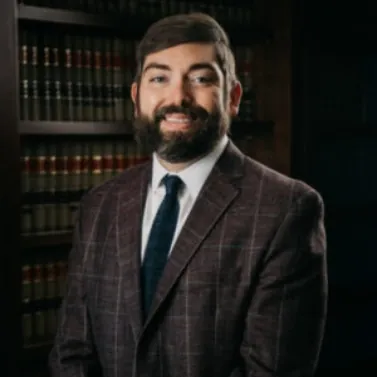Do absent parents share liability if a car strikes their child on the road?
If The Child Is Crossing Legally, The Driver Will Be Liable
There are a few factors that we need to take into consideration, [such as] the age of the child, the circumstances that led to the incident, and the laws in the State or area where the accident occurred.
However, the parents of a child hit by a vehicle are not automatically liable for such an accident, but depending upon the circumstances, they may be found negligent in some way by the court system and thus share some degree of liability for the accident.
Now if the child was crossing the street legally on a pedestrian crosswalk/area and was hit by a car, then the driver may be found to be at fault whether the child’s parents were there or not. Each case is different, and much depends on the facts and circumstances surrounding the incident.
Parents Will Be Liable If They Knew And Didn’t Take Action
In most cases, the parent does not share liability for the car accident involving their child. Generally, the driver of the car that hit a child is held liable for any resulting injuries or damages. The parent may be held responsible in some rare cases if they were aware of a significant risk to the child’s safety and failed to take action to prevent it.
Additionally, if the parent allowed their child to operate a motor vehicle without a valid license, they could be found negligent and potentially liable.
In any case, it is important to speak with an experienced personal injury attorney if your child has been hurt in a car accident. They can help you understand the legal implications of your situation and provide guidance on how best to proceed.
It is also worth noting that some states may have laws governing parental liability for child-related accidents. Therefore, it is essential to familiarize yourself with the applicable laws in your jurisdiction before attempting to pursue any legal action related to such an incident. That way, you can ensure that you are taking all necessary steps to protect your rights and those of your child.
Depends On The State’s Law
Unfortunately, there is no definitive answer to this question. The parent’s liability will depend on the circumstances surrounding the injury. Also, the shared liability will impact the case and the outcome differently for different states.
In Texas for example, the state follows the rules for modified comparative fault. That means an injured party can obtain damages for a particular injury that the injured party is partially responsible. The injured party cannot collect for injuries if the injured party’s percentage of fault is greater than the percentage that’s not your fault. If you can be found to be 49% at-fault or less, you can recover in Texas.
This distinction is essential for our question because a minor acting negligent in an injury scenario will have some blame through the parents. If a trial and jury are needed, the trier of fact (the jury) will decide on the proportions of liability. Parents often share some responsibility on behalf of the child if the child is hit in the roadway.
Factors to mitigate or add to liability would include: whether or not the child was in a crosswalk, the age of the child, the busyness of the street, whether the street was residential or not, and whether the area was under a school zone. It is always important to call an injury attorney specialist to go through these issues and potential factors. Even if the parent is partially to blame for the child’s negligence, often, the liability does not rise above 49% to trigger the loss of a claim in Texas
If Driver Proves The Accident Was Due To Parents’ Negligence
Parents share the liability if and only if the other party can prove that the accident happened because of the negligence of the parent. Though most states place liability on the one driving the car, he can ask to share the liability and reduce the damages to be paid by proving he is not entirely at fault. This will be taken to court and will take some time until a final decision is made. Since the proceedings will take quite some time, professional fees will be paid more. Hence, most drivers pay the damages to the affected party in full, owning all the liability.
Parents Can Share Liability with Driver
If a child is hit by a car while crossing the road without the supervision or presence of their parents, the question of liability can become quite complex. In some cases, the driver may be held entirely responsible for the accident and any resulting injuries. However, if it can be shown that the parents were negligent in allowing their child to cross the road unaccompanied, they may also share some liability. This is especially true if the child is very young and unable to understand the dangers of crossing the road alone. Ultimately, each case will be decided on its own merits, and it is advisable to seek legal counsel if you find yourself in this situation.
Parental Liability Cases Are Complex
Generally speaking, the parent will not share liability if the incident occurred away from home and the parent had no control over it. However, they may face criminal charges if there is any indication that their negligence caused the accident. For instance, if they allowed their young, unsupervised child to be on a road where cars regularly pass by, this could be considered negligence and result in criminal charges for the parent.
There was a case where a young child had been hit by a car while playing on the road. His parents were absent, and no criminal charges were brought against them. In this case, the parent’s liability was limited to reimbursement of medical costs and other related expenses.
Legal cases surrounding parental liability in these situations are complex and involve various factors. Parents must understand their rights and consult with legal professionals if their child has been involved in an accident on the road. This will help ensure they are not held responsible for something they did not cause or could not prevent.
This is a crowdsourced article. Contributors' statements do not necessarily reflect the opinion of this website, other people, businesses, or other contributors.







